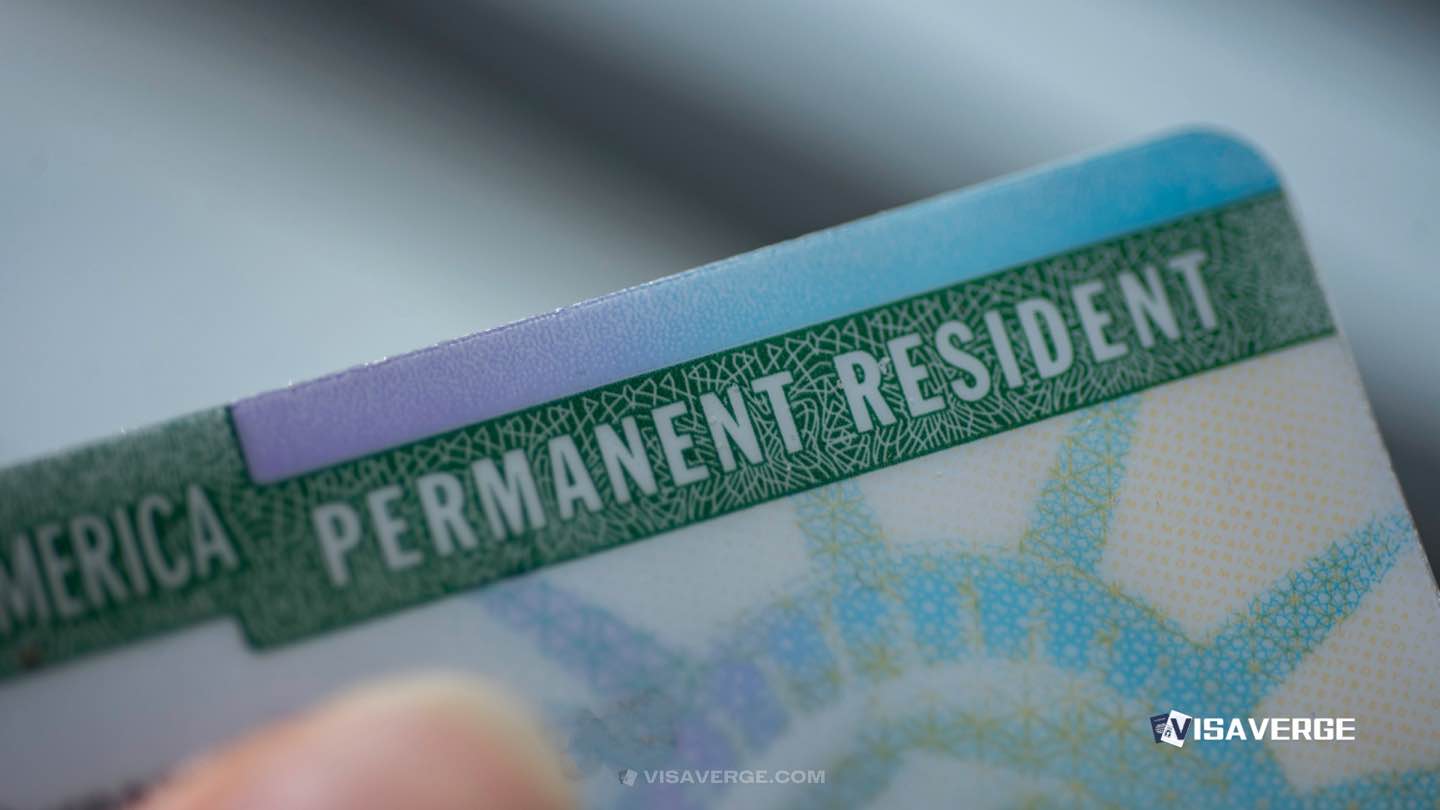(SAUDI ARABIA) A newly minted U.S. permanent resident is drawing fierce attention online after describing how he received a green card in July 2025 despite a dismissed class C misdemeanor for indecent exposure and several traffic tickets, some dismissed and others paid. In a widely shared Reddit post, the man said he fully disclosed his record during his interview and was still approved, but he is now anxious about a planned two‑week trip to Saudi Arabia. The post has set off a wave of anger, doubt, and practical tips—an uneasy mix that often follows stories where immigration rules collide with people’s complicated pasts.
He wrote plainly: “I got my green card in July of 2025… before getting my green card I had a class c misdemeanour for indecent exposure that was dismissed and a few traffic tickets… I had disclosed all of that before my interview and… still got approved. However… I don’t know what to do. We plan on going to Saudi Arabia for 2 weeks.” The candid post landed in a corner of the internet where empathy and judgment often sit side by side. Within hours, the comment thread split between harsh moral claims and matter‑of‑fact travel advice.

Some posters blasted the approval as a symbol of what they see as loose screening. “Sex crimes are overlooked under the current administration. You’re fine,” one wrote with cutting sarcasm. Another scoffed: “So you were granted a green card with those misdemeanors? Like what are you afraid of? Clearly USCIS didn’t care when you got your green card approved.” The mood was not entirely hostile, though. A few users tried to calm the traveler’s nerves, saying short trips and clean conduct after approval usually don’t cause trouble at the airport.
One person, guessing the person might face only brief checks on return, wrote: “If you did not commit any crime AFTER your GC approval you should be fine. You will be probably be held in secondary for like 15 minutes.” Another, identifying as a Saudi citizen with a past DUI and other misdemeanors, said he had traveled twice this year without incident: “My entries were all welcome with huge smiles from agents. Money talk in this country if you didn’t know.” Their experiences, while personal, echoed what many immigration attorneys tell clients about minor records and truthful applications.
Key legal question
At the core is a basic question that reaches beyond one Reddit thread: what kinds of past missteps will block a green card, and what kinds can be excused if the person is honest and the issues are resolved?
The system’s answer is layered:
- Minor traffic tickets—like speeding that doesn’t injure anyone—or dismissed low‑level charges often carry little weight if fully disclosed.
- More severe conduct, including indecent exposure in some settings, a DUI that harms someone, or repeat offenses, can force closer review and, in some cases, denial.
- Dismissals, resolved infractions, and full disclosure can tip the balance toward approval in many borderline cases.
That framework helps explain why the applicant in question reportedly passed. The indecent exposure charge was a dismissed class C misdemeanor, not a conviction, and he told officers about it. He also said the traffic tickets were either dismissed or paid. In situations like that, case officers can and do approve residency. Honesty matters. A lie on a form, or hiding a past arrest, can sink a case that otherwise might be allowed.
Important: Once a person becomes a lawful permanent resident, the focus often shifts to conduct after approval—fresh crimes are far more likely to trigger problems at the border.
Legal context and agency discretion
Guidance shared in the thread, and echoed by practitioners, draws a line between garden‑variety infractions and conduct that suggests danger, dishonesty, or ongoing problems.
- Minor traffic violations rarely affect immigration outcomes if resolved.
- Some misdemeanors, when dismissed and fully disclosed, can be weighed and set aside.
- Offenses with injury, repeat behavior, or certain sexual‑conduct allegations tend to receive closer scrutiny.
Full disclosure sits at the center of the process. The Redditor said he told the officer about the indecent exposure case and the traffic tickets before the interview. In the context described, that candor is often decisive.
According to analysis by VisaVerge.com, applicants who resolve minor infractions and answer every question honestly usually clear the background review, while hiding an arrest record can be fatal to the case even when the charge itself is minor. The same principle applies after residency is granted: new crimes can restart scrutiny whenever a person travels or applies for future benefits.
An important piece of context is that immigration law separates minor civil traffic matters from things that raise public‑safety or moral‑conduct alarms. The Reddit account described run‑of‑the‑mill traffic tickets and a dismissed low‑level case. That does not mean officers “don’t care,” as one critic charged; it means the system allows room for people to show they resolved small mistakes and moved on.
Official policy guidance that officers use reflects this balance. It addresses crimes that can make a person inadmissible, the role of convictions versus dismissed cases, and the weight of truthful testimony. While the Reddit post is a single account, it lines up with how cases like this often go when the file shows resolution and disclosure. The record described—a dismissed indecent exposure charge and traffic tickets that were handled—would not automatically bar residency. Identity, candor, and post‑approval behavior all matter when officers assess risk at a later border check or during a future application such as travel permission or citizenship.
For readers who want primary sources, USCIS publishes the framework officers apply when reviewing criminal history for admissibility and good moral character. The agency’s policy manual explains how different categories of offenses are treated and how officers weigh records that show dismissal or rehabilitation. That official guidance is available here: USCIS Policy Manual, Volume 8.
Travel plans, border screening, and Saudi entry
The Redditor’s immediate worry is practical: how will a short trip to Saudi Arabia play out at departure and on return?
Commenters who had flown recently said many lawful permanent residents with resolved, disclosed minor issues reenter without trouble. Common expectations and tips included:
- Keep your green card and passport handy.
- Answer questions plainly and calmly.
- Expect a possible brief stop in secondary inspection for additional record checks.
- Do not bring any new legal problems—fresh offenses cause the most trouble.
The thread also collected advice on Saudi entry. Key points summarized:
- Entry to Saudi Arabia depends on the passport you carry, not your residency card.
- Many nationalities can apply for an e‑visa or receive a visa on arrival.
- A passport generally needs at least six months of validity.
- The e‑visa is delivered as a digital document with a QR code for scanning.
- Stay lengths on short‑term visas can reach up to 90 days.
First‑time visitors should carry a valid U.S. or Schengen visa or residency permit with an entry stamp when using the Saudi e‑visa route; digital stamps were described as not accepted for this purpose. Returning visitors with a still‑valid Saudi visa would not need to meet that residency‑permit condition again.
None of the practical travel advice suggested that a dismissed indecent exposure case or paid traffic tickets would by themselves block a short family visit.
Public reaction and broader themes
The tone shifted when commenters moved from travel logistics to ethics. Some framed the approval as a moral failure by the government, arguing that any indecent exposure case should count against the applicant. Others pushed back, saying the law already supplies limits and that a dismissal, especially for a class C misdemeanor, is a clear signal that prosecutors and judges did not see enough to proceed.
Several themes emerged:
- Immigration adjudication balances public safety and second chances.
- Officers make case‑by‑case judgments based on facts, filings, and candor.
- Dismissed charges with disclosure often weigh differently than convictions.
- Post‑approval conduct is crucial—behavior after getting the green card matters a lot.
Supporters argued the process worked as designed: the applicant disclosed, the charge was dismissed, and the resolved traffic tickets were in the file. No commenters suggested the man had hidden anything. Critics focused more on optics and general frustration about crime rather than a specific legal breach.
Practical travel checklist (from the thread)
- Carry these documents:
- Passport (check at least 6 months validity)
- Green card
- Proof of dismissed case(s) or documentation showing resolution of tickets (if available)
- At the airport:
- Answer questions calmly and directly.
- Be prepared for a short secondary inspection (often brief).
- Don’t argue with officers; provide requested documents.
- Before travel:
- Verify visa requirements based on nationality.
- Apply for the correct Saudi visa (e‑visa or visa on arrival) and retain the QR code/digital proof.
- Allow extra time for arrival/return processing.
Quick takeaway: The record described would not typically bar entry if it was disclosed and resolved. Officers can pause a traveler for extra review, but that pause is often brief. The real risk comes from any new offenses after approval.
Final assessment
The online uproar will not settle soon, but the facts in this case are narrow: a dismissed indecent exposure charge, resolved traffic tickets, full disclosure, and a planned two‑week trip. By the thread’s own account, that mix points to routine travel and a quick, uneventful return home.
This Article in a Nutshell
A man got a green card in July 2025 after disclosing a dismissed indecent‑exposure charge and traffic tickets. Dismissals and truthful disclosure often permit approval; future crimes threaten reentry. Carry proof of resolution, check visa rules for Saudi Arabia, and expect possible brief secondary inspection on return.













